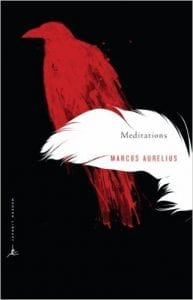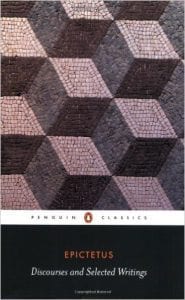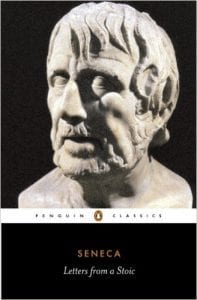알라딘: 명상록 : 철학자 황제가 전쟁터에서 자신에게 쓴 일기 - 철학자 황제가 전쟁터에서 자신에게 쓴 일기
[eBook] 명상록 : 철학자 황제가 전쟁터에서 자신에게 쓴 일기 - 철학자 황제가 전쟁터에서 자신에게 쓴 일기
마르쿠스 아우렐리우스 (지은이), 박문재 (옮긴이) | 현대지성 | 2018-04-17
공유
URL
종이책
[90일 대여 반값 + 30% 쿠폰]
종이책정가 11,200원
전자책정가 5,500원
대여도서는 크레마 터치에서 이용 불가합니다.
대여도서는 소득공제 대상이 아닙니다.
페이지 수 272쪽 (종이책 기준) | ISBN : 9791187142393
제공 파일 ePub(28.62 MB)
영어, 라틴어, 그리스어에 능통한 박문재 번역가가 심혈을 기울여 꼼꼼히 번역한 그리스어 원전 완역판이다. 여기에 독자들을 위해 번역 과정에서 알게된 지식을 바탕으로 번역가의 상세한 해제를 수록하였고, 또한 아우렐리우스가 많은 영향을 받은 에픽테토스의 ‘명언집’을 부록으로 담아 이 불멸의 고전을 좀더 깊이 있게 이해할 수 있도록 하였다.
플라톤이 꿈꾸던 철학자 황제 마르쿠스 아우렐리우스가 쓴 명상록은 전쟁을 수행하고 통치하는 동안 머릿속에 떠오른 생각들을 단편적으로 기록한 책으로, 논증적인 글과 경구가 번갈아 나타난다. 그에게 자신의 내면은 외적인 그 어떤 것도 침범할 수 없는 “요새”였다. 따라서 명상록은 우리가 그의 요새의 광장으로 들어가는 관문인 셈이다.
해제 | 박문재
마르쿠스 아우렐리우스의 연보
제1권
제2권
제3권
제4권
제5권
제6권
제7권
제8권
제9권
제10권
제11권
제12권
부록: 에픽테토스의 명언집
“지금 바로 이 순간에 죽을 수도 있는 사람처럼 모든 것을 행하고 말하고 생각하라. 신들이 존재한다면, 인간 세상을 떠나는 것은 두려워해야 할 일이 아니다. 설마 신들이 너를 불행 속으로 밀어넣겠느냐. 만일 신들이 존재하지 않거나 인간사에 관여하지 않는다면, 신들도 ...
“최고의 복수는 너의 대적과 똑같이 하지 않는 것이다.” --- 제6권 중에서
“잠시 후면 너는 모든 것을 잊게 될 것이고, 잠시 후면 모든 것이 너를 잊게 될 것이다.” --- 제7권 중에서
지은이 : 마르쿠스 아우렐리우스 (Marcus Aurelius Antoninus)
저자파일
최고의 작품 투표
신간알리미 신청
로마 제국의 16대 황제. 오현제의 마지막 황제이며 스토아 철학자로서 명상록을 저술하였다. 안토니누스 피우스 황제의 양자가 되고, 145년 황제의 딸 파우스티나와 결혼하였다. 마르쿠스는 수사학자였던 프론토를 비롯해서 여러 유명한 스승들로부터 교육을 받았다. 그는 12세 때부터 철학에 깊은 흥미를 보여 유니우스 루스티쿠스의 지도 아래 스토아 철학에 입문해서 에픽테토스의 담화록을 배웠고, 이 책은 그의 명상록에 많은 영향을 끼쳤다.
그는 파우스티나와 결혼해서, 여러 자녀들을 두고서 대체로 행복한 결혼생활을 했던 것으로 보인다. 146년부터 피우스 황제와 공동으로 통치하였으며, 140년, 145년, 161년 3번에 걸쳐 집정관이 되었다. 161년 피우스 황제가 죽은 뒤 제위에 올라 180년까지 통치하였다.
162년부터 165년 사이에 파르티아가 제국의 동부 지역을 침공한 것이 주된 문제였고, 166년과 168년에는 이탈리아에서 발생한 전염병과 동생 베루스의 죽음으로 제국의 전선이었던 도나우 지역을 안정시키고자 하는 시도들이 중단되었다. 그 결과 170년에 게르만족의 침공이 심각해져서, 마르쿠스는 180년에 죽을 때까지 북부 이탈리아와 게르마니아에서 원정을 수행해야 했다. 이 원정은 성공적이었고, 국경 지대들은 안정되었다. 175년에 이집트와 시리아의 총독이었던 아비디우스 카시우스가 반란을 일으켰으나 진압되었다. 그는 그 기회에 동방지역을 평정하고, 안티오크, 알렉산드리아, 아테네를 방문하였다.
177년 마르쿠스는 아들 코모두스를 공동 황제로 선포했다. 그들은 협력하여 도나우 강 전쟁을 다시 시작했다. 180년 마르쿠스가 코모두스를 국정의 최고 조언자로 임명하고 난 직후 군대 사령부에서 병사하였다.격퇴하다 빈도보나(오늘날의 오스트리아 빈)에서 병사했다고 알려지고 있다.
옮긴이 : 박문재
저자파일
최고의 작품 투표
신간알리미 신청
서울대학교 법과대학, 장로회신학대학교 신대원 및 동 대학원을 졸업하였으며, Biblica Academia에서 라틴어와 그리스어를 깊이 있게 공부하였다. 대학 시절에 역사를 비롯하여 서양 철학과 독문학을 두루 공부하였다. 그는 신학과 사회과학을 좀 더 깊이 연구하기 위해 독일 보쿰Bochum 대학교에서 공부하였다. 또한 성경과 고전어 연구 기관인 Biblica Academia에서 오랫동안 라틴어, 그리스어, 히브리어를 익히고 고대의 라틴 원전과 그리스어 원전을 공부하였다. 역자는 전문 번역가로 30여년 간 신학과 인문학 도서를 많이 번역하였다. 역서로, 존 스튜어트 밀의 『자유론』, 막스 베버의 『프로테스탄트 윤리와 자본주의 정신』, 존 브라이트의 『이스라엘 역사』, 제임스 던의 『바울 신학』 등이 있고, 라틴어 원전 번역한 책으로 보에티우스의 『철학의 위안』, 토마스 아 켐피스의 『그리스도를 본받아』, 아우구스티누스의 『고백록』 등이 있다. 그리고 그리스어 원전 번역한 책으로 마르쿠스 아우렐리우스의 『명상록』이 있다.
그리스어 원전 완역판
하버드대, 옥스포드대, 시카고대 필독 고전
“1년에 두 번은 꼭 읽는다.” -빌 클린턴(前 미국 대통령)
현대지성에서 출간한 『명상록』은 영어, 라틴어, 그리스어에 능통한 박문재 번역가가 심혈을 기울여 꼼꼼히 번역한 그리스어 원전 완역판이다. 여기에 독자들을 위해 번역 과정에서 알게된 지식을 바탕으로 번역가의 상세한 해제를 수록하였고, 또한 아우렐리우스가 많은 영향을 받은 에픽테토스의 ‘명언집’을 부록으로 담아 이 불멸의 고전을 좀더 깊이 있게 이해할 수 있도록 하였다.
플라톤이 꿈꾸던 철학자 황제 마르쿠스 아우렐리우스가 쓴 명상록은 전쟁을 수행하고 통치하는 동안 머릿속에 떠오른 생각들을 단편적으로 기록한 책으로, 논증적인 글과 경구가 번갈아 나타난다. 그에게 자신의 내면은 외적인 그 어떤 것도 침범할 수 없는 “요새”였다. 따라서 명상록은 우리가 그의 요새의 광장으로 들어가는 관문인 셈이다.
아우렐리우스는 스토아 철학을 자기 나름대로 변형시킨 것을 근간으로 삼아서, 자신에게 다가오고 있던 아주 민감한 도전들이자 인류 전체가 보편적으로 직면한 도전들에 대처하기 위한 힘을 발견하기 위해서, 자신의 핵심적인 신념들과 가치들을 짤막하면서도 강렬하고 흔히 힘 있는 성찰들을 통해 정확하게 표현해내려고 애쓴다. 그 도전들은, 그에게 다가오고 있던 죽음을 어떤 식으로 맞아야 하는가 하는 것, 자신의 사회적 역할을 정당화해 주는 논리를 발견하는 것, 자연 세계 속에서 도덕적인 교훈을 찾아내는 것 등이었다.
명상록은 오랜 세월 역사상 가장 위대한 고전 가운데 하나로 여겨져 왔다. 그 사상은 마르쿠스 자신의 것이긴 하지만 독창적인 것은 아니었다. 그것은 스토아 철학이고, 에픽테토스의 가르침에서 나온 것이지만, 일부는 플라톤주의에 가까웠다.
인간의 삶과 죽음을 영원의 관점에서 성찰한 마르쿠스의 이 저작은 사람들에게 끊임없이 도전과 격려와 위로를 주는 영속적인 힘을 지니고 있다.
이 책의 특징
#그리스어 원전 완역판
#전문 번역가 박문재의 상세한 작품 해설수록
#아우렐리우스가 많은 영향을 받은 에픽테토스의 ‘명언집’ 국내 최초 수록
#하버드대, 옥스포드대, 시카고대, 서강대 필독서
명상록은 오랜 세월 역사상 가장 위대한 책 가운데 하나로 여겨져 왔다. 그 사상은 마르쿠스 아우렐리우스 자신의 것이긴 하지만 독창적인 것은 아니었다.
1. 명상록은 어떤 책인가
명상록을 쓴 일차적인 목적은 그가 자신의 내면 깊은 곳의 생각들을 살펴보고, 지금 이 상황에서 어떻게 사는 것이 최선의 삶인지를 자기 자신에게 충고하기 위한 것이었다. 어떻게 그 오래된 책이 하버드대와 옥스포드대 필독 고전에 들어갔는가? 그는 이 책에서 자신이 지금까지 살아온 삶 전체를 떠받쳐왔던 중요한 명제들, 윤리와 관련된 핵심적인 원리들과 통찰들을 짧은 글들 속에 명료하게 담아내고자 했다. 다음으로 좀 더 큰 틀에서 이 저작의 목적은 기원후 1세기와 2세기에 인간이 자신의 삶 속에서 실천할 수 있는 윤리를 담은 책을 펴내어 널리 전파하는 것이었다.
그에게 특히 큰 영향을 끼쳤던 것은 에픽테토스의 글이었다. 그가 기반으로 하고 있던 스토아 철학에서 널리 사용되던 두 가지 유형의 저작은 그의 명상록에 큰 영향을 끼쳤다. 한 가지 유형은, 윤리적인 삶을 어떻게 영위해 나가야 하는지에 대한 일반적인 지침을 제시하는 것인데, 키케로의 의무론이 유명한 예였다. 또 다른 유형의 저작은, 인간이 심리적이고 윤리적으로 어떤 실패들을 겪는지를 밝히고서, 그것들을 질병으로 규정하여 치유하는 수단으로 철학을 사용하는 것이었다. 세네카의 분노론이 그런 저작이었다.
마르쿠스의 명상록은 이 두 유형의 저작들의 저술 목적과 주제들을 반영해서, 충고와 치유를 아주 독특한 방식으로 결합하여 제시한다.
2. 마르쿠스 아우렐리우스의 사상
마르쿠스는 명상록에서 오직 스토아 철학에만 의거해서가 아니라 여러 철학 학파들의 사상을 혼합해서 자신의 신념을 설파한 것으로 보인다. 하지만 그런 절충주의적인 태도는 당시의 지식인 세계에서 일반적인 것이 아니었다. 이 시대의 일반적인 경향은 어느 한 철학 학파를 신봉하여 따르는 것이었다.
스토아 철학이 마르쿠스에게 영향을 미쳤음을 보여주는 좀 더 적극적인 이유는, 명상록에서 그는 스토아 철학의 전문용어들을 사용하지 않고, 어떤 때에는 그 개념들을 자신만의 독특한 방식으로 재구성해서 사용하기도 하지만, 전체적으로 볼 때에는 스토아 철학의 냄새를 강하게 풍긴다는 것이다. 따라서 우리는 마르쿠스는 기본적으로는 스토아학파의 철학을 따르면서 거기에 기반해서 여러 철학 학파의 사상들을 폭넓게 인정한 것이었다는 결론을 내릴 수 있다.
3.스토아 철학의 핵심 개념
당시의 스토아 철학의 특징으로 다섯 가지를 들 수 있고, 이것들은 명상록에서 두드러지게 강조되고 있는 주제들과 일치한다.
첫 번째는, 미덕을 따라 사는 삶만이 행복한 삶이라고 본 것이다. 즉 인간이 행복한 삶을 살기 위해 필요한 것은 미덕이 전부라는 사상이다.
두 번째는, 인간의 감정과 욕망은 어떤 것들을 가치 있거나 바람직한 것으로 여기느냐와 관련된 신념에 의해서 직접적으로 결정된다고 보는 사상이다. 즉 감정과 욕망은 인간의 정신생활에서 별개의 비이성적인 차원을 형성하지 않는다.
세 번째는, 인간은 본성적으로 다른 사람들을 유익하게 하고자 하는 내재된 성향을 지니고 있다고 보는 사상이다.
네 번째는, 자연학에 속한 것으로서 윤리학과 자연학을 이어주는 연결고리로서의 역할을 하는 것이었다. 당시 쟁점들 중 하나는, 자연 또는 우주에는 내재된 목적 또는 의미가 존재하는 것인가, 아니면 단지 자연적인 법칙들이나 과정들이 제멋대로 작용해서 생겨난 결과물일 뿐이냐 하는 것이었다. 스토아 철학자들은 첫 번째 견해를 채택해서 모든 일은 이미 결정되어 있고, 일련의 모든 사건들은 신의 목적이나 섭리를 구현하는 것이라고 보았던 반면에, 에피쿠로스 철학자들은 두 번째 견해를 채택해서, 물질의 원자적 성격에 기초한 자신들의 사상을 설파했다. 스토아 철학에서는 윤리학과 자연학 같은 철학의 분야들이 서로 연결되어 있어서 서로를 밑받침해 준다고 보았다. 따라서 신의 섭리에 대한 그들의 신념은 자연학의 일부였지만, 윤리학과 관련된 중요한 틀을 제시해 주는 것이기도 했다. 그리고 반대로 윤리학은 섭리를 비롯한 신과 결부된 원리들을 밑받침해 주고 의미 있게 해 주었다.
다섯 번째는, 스토아 철학자들은 철학을 고도로 통일되고 지식체계를 형성하고 있는 것으로 보았다.
4. 명상록에 자주 등장하는 주제들.
마르쿠스는 자신의 명상록에서 아주 표준적인 스토아 철학의 주제들을 사용하기도 하지만, 어떤 경우에는 우리가 예상할 수 없었던 자신만의 독특한 표현방식을 사용하기도 한다. 예를 들면, 그는 우리의 정체성을 규정하는 것은 본질적으로 우리를 “지배하고 있는 것”임을 강조한다. 그가 우리를 “지배하고 있는 것”으로 표현한 것은 “이성”을 가리킨다. 그는 인간을 구성하고 있는 서로 다른 부분들인 “육신”과 “정신”을 대비시킨다. 표면상으로 볼 때에는 몸이 없는 정신과 몸을 지닌 육신을 구별하는 플라톤적인 이원론을 따르고 있는 것처럼 보인다. 하지만 그런 대목들은 앞에서 살펴본 스토아 철학의 첫 번째 특징적인 사상을 반영해서 윤리적인 교훈을 제시하고 있는 것일 뿐이다.
다른 주제들에서는 마르쿠스에 대한 스토아 철학의 영향이 좀더 분명하게 드러난다. 예컨대, 그는 에픽테토스와 마찬가지로 어떤 일이나 환경에 대해서 선하다거나 악하다는 쓸데없는 판단을 덧붙임으로써 괴로움을 자초하지 말라고 자신에게 반복적으로 충고한다.
마르쿠스는 한편으로는 신적인 질서 또는 우주적인 질서가 인간의 윤리적 삶에 중요한 틀을 형성하고 있다는 사상을 자주 언급하고, 이 점에서 에픽테토스를 많이 연상시키지만, 다른 한편으로는 “섭리인가 원자들인가”라고 반문함으로써, 자연에 내재하는 목적이 있다는 스토아학파의 사상과, 우주는 그저 원자들의 이합집산의 결과물일 뿐이라는 에피쿠로스학파의 사상 중에서 어느 쪽의 세계관이 참된 것인지를 단정하지 않고 유보하는 입장을 취하기도 한다.
전체적으로 보아서, 마르쿠스는 자신의 명상록에서 스토아 철학을 충분히 이해해서 윤리학과 자연학을 통합한 사상을 훌륭하게 제시하고 있다고 할 수는 없지만, 스토아학파의 섭리적인 세계관이 참되다고 믿었고, 그런 세계관을 기반으로 해서 인간의 윤리적 실천을 제시하고 있다고 말할 수 있다.
hypnosis ㅣ 2018-05-28 l 공감(1) ㅣ 댓글(0)
kyslhs35 ㅣ 2018-04-27 l 공감(0) ㅣ 댓글(0)
<명상록>은 고전시대에 씌여진 현존하는 글들 중에서 그 연대와 문화에 있어서 유례가 없는 독보적인 저작으로서, 로마 황제였던 마르쿠스 아우렐리우스(Marcus Aurelius)가 자신의 생애 말기에 외적들의 침공을 제압하기 위해서 제국의 북부 전선이었던 도나우 지역으로 원정을 간 10여년에 걸친 기간 동안에 쓴 것으로 추정되는 철학 일기다.
마르쿠스 아우렐리우스는 로마 제국의 16대 황제로 오현제의 마지막 황제이며 스토아 철학자로서 명상록을 저술하였다. 안토니누스 피우스 황제의 양자가 되고, 145년 황제의 딸 파우스티나와 결혼하였다. 마르쿠스는 수사학자였던 프론토를 비롯해서 여러 유명한 스승들로부터 교육을 받았다. 그는 12세 때부터 철학에 깊은 흥미를 보여 유니우스 루스티쿠스의 지도 아래 스토아 철학에 입문해서 에픽테토스의 담화록을 배웠고, 이 책은 그의 명상록에 많은 영향을 끼쳤다.
<명상록>은 17세기에 와서 붙여진 제목이다. 출판을 의도해 쓴 글이 아니라 틈틈이 한두 구절을 적어두는 식으로 자신의 개인적인 비망록으로 쓴 것이었기 때문에 이전에는 <그 자신에게>라는 명칭으로 불렸다고 한다.
이 책을 읽기 전에 책 서두에 있는 '해제'를 꼭 참고하면 좋을 듯하다. 앞서 언급한 내용들을 보다 상세히 알 수 있다. <명상록>은 지금으로부터 2000여년 전에 살았던 로마의 황제이자 한 인간이 삶에 대한 고민을 어떻게 했는지를 알 수 있는 자료이다. 다만 내용들을 읽다보면 그때나 지금이나 다를 바 없다는 걸 느끼게 된다. 인간의 삶은 늘 변함없는 고민들을 하는구나 싶다.
<명상록>은 전체 12권으로 되어 있고 주된 고민들은 '삶을 어떻게 살아야 하는가?' 하는 철학적 고민들이다. 마르쿠스가 스토아 철학의 영향을 입은 인물이라는 점을 감안하면 그의 생각들이 12권의 내용 속에 비슷하게 반영되어 있음을 알 수 있다. 공공의 이익을 위한 일이 아니라면 너나 잘 하라, 자연에서 태어나 다시 돌아가는 것이니 욕심없는 삶을 살라는 것 등 대개의 내용들이 중국 노자의 무위자연 사상과 비슷하다. 어쩌면 더욱 직설적인 글들이라 자극을 많이 받을 수도 있다. 당시로서는 너무 멀리 떨어진 곳에 살았던 인물이니 영향을 받았을리는 없겠지만 스토아 철학자들이 노자의 도덕경의 내용과 비슷한 생각을 가지지 않았나 싶다.
개인적으로 <도덕경>의 생각들을 공감하는 편이라 <명상록> 역시 다시금 생각의 기틀을 다잡는 데 좋은 글이었다. 인간으로 태어나 어떻게 살아야 하는지를 한 번쯤 고민하는 이들에게 도움이 되리라 여겨진다. 빌 클린턴 미국 전 대통령도 1년에 두 번씩 읽는 책이라고 하니 <명상록>을 통해 자신의 삶과 공동체 속에서 어떤 모습을 찾아야 할지 생각해 보는 시간을 가졌으면 한다.
서양판 논어라는 생각이 든다.
인문학 책의 특징을 모두 갖고 있다.
논어를 읽을 때 한줄 한줄 주옥같은 느낌이
명상록에서도 선명히 다가온다.
다만 논어와의 차이는 신에 대한 믿음이 온책에
스며들어 있다.
도저히 황제가 적었다고는 느껴지지않는
깊은 사색의 세계는 공자와 토론을 해도 결코 뒤지지
않을 깊은 세계를 보게 만든다.
내 마음속 한 자리에 자리잡고 있던 정신세계에
대한 동양철학의 우월성이 이 명상록으로 동서양이
대등한 생각을 하고 사색을 했음을 느끼게 한다.
정말 동양철학이 월등할 것으로 생각했었다.
전혀 그렇지 않다는 생각이 이제는 자리 잡았다.
플라톤과 소크라테스 등 많은 서양 철학가 들의
책을 보았지만 큰 감흥을 얻지 못했다. 너무 이해하기가
난해한 부분이 많았다. 단어도 생소하고 문장도 어려웠다.
박문재 선생의 명상록은 다르다.
이해하기 훨신 수월하고 좋은 경험이다. 고전을 이렇게
쉽게 써놓은 글은 아직 보지 못했었는데. 이책을
보면서 누구나 쉽게 서양 고전에 가까이 할 수 있는 좋은
책이라는 생각에 너무 기쁘다.
해외의 많은 유명인사들이 가까이하는 이유가 있는
좋은 책이다. 인생의 길을 걸어가는 데, 나침반 역할을
하고, 깊이있는 사고를 할 수 있는 내 인생의 추천서가
될 듯 하다.
아우렐리우스의 『명상록』, 많이 알려진(?) 책이지만, 솔직히 읽어본 적이 없는 책이다. 누군가 『명상록』에 대해 언급하면, 알고 있다는 듯 고개를 끄덕이지만 실제론 알지 못하던 책(아는 건 맞지만 읽어본 적은 없는). 그런 『명상록』을 금번 현대지성에서 출간된 책으로 접하게 되었다. 신학도서 번역으로 유명한 번역가 박문재의 헬라어 원전으로 완역된 책이니만큼, 더욱 기대감을 갖고 읽게 되었다. 전 미국 대통령인 빌 클린턴이 1년에 두 번은 꼭 읽는다는 선전 문구에 설마 싶었지만, 내용을 접하며, 이런 책이라면 충분히 그럴 ...
특별한 종교를 갖고 있지 않은 탓에 가끔은 어떤 말에 기대고 싶을 때가 있어도 갑자기 찾아서 읽어볼 책이 마땅치 않아 대체론 그때 시집을 읽곤 했다. [고백록], [명상록], [수상록] 등의 명성은 들었지만 그저 언젠가 읽어보리라는 위시리시트였을 뿐 그 실체를 만난 것은 처음인데 왜 미국의 전직 대통령이 해마다 두번씩 읽는지 알 것 같다.
?
이 책을 읽는 것은 현재 진행형이다. 아주 더디게 읽고 있으며 그 읽는 방법과 속도에 스스로는 만족하지만 서평단으로 받은 책이라 리뷰를 미룰 수 없기에, 더구나 다 읽고 난 후나 절반 넘게 읽은 지금이나 느낌은 크게 달라지지 않을 것이기에 소감을 적어보려고 한다.
?
이렇게 읽고 있다. 마음에 닿는 글을 볼펜으로 옮겨적으며 다시 음미하면서.
대개는 검은 볼펜으로 옮기고 아우렐리우스가 자신을 다잡는 마음으로 스스로에게 글을 남겼듯이 나 역시도 나 자신을 다잡는 마음이 강하게 드는 글은 파란 볼펜으로 옮기면서.
2세기에 한 나라의 황제가 이토록 끊임없이 자신의 나약함과 나태함과 무능함과 타락을 경계했다니 이건 한 개인이 읽기 보단 지도자들이 읽어야 할 글이구나 싶은 생각이 든다. 이토록 자신을 채찍질하고 손톱만큼도 봐주지 않는다는 마음가짐으로 삶을 살았구나 싶은 마음은 존경을 넘어 경외의 감정을 느끼게 한다. 이래서 미국의 전직 대통령이 해마다 두번씩 읽었구나!( 왜 지금 대통령은 읽지 않는건가?)
난 대톨령도 지도자도 아니지만 이 책 가득 저렇게 포스트잇이 붙어져 있다. 물론 그중엔 좀 무리다 싶은 생각도 있고 내가 전혀 공감이 가지 않는 글들도 있다. 그럴 땐 아우렐리우스가 아우렐리우스에게 쓴 특수한 경우라고 보아서 넘기면 된다. 하지만 글 자체가 보편적인 가치를 말하는 경우가 많아 19세기가 지난 현재에 읽어도 마치 요즘 어떤 종교인이 쓴 에세이인 양 마음에 와 닿는다. 게다가 시대가 다르기에 생기는 웃음 포인트도 있다. 가령, 겨드랑이 냄새가 심한 사람에게 화내면 안된다는 글과 그리고 몸무게 100킬로가 되는 것은 화내지 않으면서 오래 살지 못한다고 화를 내냐고 자문자답하는 글은 요즘 같으면 일부러 웃기려고 쓸 수 있는 글인데 둘다 너무나 정색하며 이야기하기에 의도하지 않은 웃음을 준다. 결론은, 원글 자체가 너무나 좋다. 내가 그리스어를 배우지 않은 것이 좀 속상할 정도로 말이다.
역자가 심혈을 기울여 원전을 번역하였다는 것은 주석을 통해서도 책날개에 역자 소개를 통해서도 충분히 알겠다. 다만, [명상록]이라는 책의 성격에 맞지 않게 책날개에 '역자는 언어에 타고난 수재로서...'라고 하는 문장을 읽자면 이 분이 이 책을 제대로 이해한 것인지는 의문이 든다. 또한 다른 명상록과 비교를 해 봐야겠지만 한국어를 좀더 유려하게 표현하면 좋겠다는 바람이 책을 읽으며 생긴다.하지만 그런 것들을 모두 감안하고서라도 이 책은 충분히 훌륭하다. 원전을 모르는 내가 이런 말을 하긴 주제넘지만 아마도 원전 자체가 너무나 훌륭하기 때문이다. 나 역시도 이 책을 해마다는 아니어도 틈틈히 자주 읽어 내 마음을 경계해야할 것 같다. 선한 사람으로, 권력보다는 철학을 중시하며 살고, 우주의 한 일원으로서 의미있게 살아가기 위해서 말이다. ?물론 나 말고 다른 사람(?)도 이 책을 좀 읽었으면 하는 바람이 있다. 그 사람도 선하며 의미있게 살아갔으면 하는 바람이 있으므로.
덧붙이는 글
이 사진은 어제 우연히 깔맞춤이 된 것을 보고 신기해서 찍어봤다^^ 아, 이런 것에 집착하지 말아야 하는데....ㅋ?
읽지 않았는데도 왠지 읽은 듯한 느낌을 주는 몇 권의 책들이 있어요. 그 책에 대해서 많이 배우고, 또 인용된 문구들을 많이 봐서인데요. 그 중에 하나가 바로 철인황제라 불리는 마르쿠스 아우렐리우스의 <명상록>입니다. 이번에 현대지성에서 그리스어 원전을 완역한 <명상록>이 나와서 드디어 제대로 읽어보게 되었습니다.
오랜 시간 라틴어와 그리스어를 공부하여 전문 번역가로 활동중인 박문재의 해제를 더했고, 마르쿠스 아우렐리우스에게 큰 영향력을 끼친 것으로 알려져 있는 에픽테토스의 ‘명언집’이 부록으로 수록되어 있어서 다양한 각도로 생각해볼 수 있는 장점이 있었습니다. 각도하니 문득 그런 말이 떠오르더군요. 야구의 타격이론에 대한 이야기였는데, 하나의 매커니즘으로 이루어져 있고, 자신에게 맞게 최적화한 타격자세를 쉽게 바꿀 수는 없지만, 각도를 조절하는 것은 가능하다는 것이었는데요. 제가 좋아하는 에픽테토스의 “인간은 어떤 대상이 아니라, 그 대상에 대한 시각 때문에 불행해진다”라는 말과도 연결점이 있다고 여겨지네요. 마루쿠스 아우렐리우스 역시 “너는 왜 너의 외부에서 일어나는 일들에 휘둘리고 있는 것이냐?”고 화두를 던지는데요. 제가 아무래도 다른 사람들의 평가에 예민한 편이라 그런지 이런 문구들이 더욱 눈에 들어오더군요.
마르쿠스 아우렐리우스는 로마의 전성기를 이끈 오현제의 마지막 황제이자, 스토아 철학자였는데요. 그는 전쟁 중에 자신이 그 동안 보고 배운 것과 그 속에서 키워온 자신의 생각을 정리하여 명상록을 집필합니다. 스토아 철학이 지지하는 것은 바로 이성입니다. 또한 예전에 그의 전기를 읽으면서 그가 얼마나 치열하게 고민하며 살아왔는지를 살펴본 적이 있기 때문에, 명상록의 글귀들이 더욱 의미 있게 느껴지기도 했어요. 스스로 이룬 성과에 취하게 될까 우려했던 것일까요? 그러한 경계의 문구들이 더욱 그의 깊이를 미루어 짐작하게 해주더군요. “네가 태어난 것이나 죽는 것은 네가 할 수 있는 일이 아니다. 그러므로 자연의 결정을 선의로 받아들여서 순순히 떠나라. 너를 떠나보내는 자연도 선의를 가지고서 너를 떠나보내는 것이기 때문이다”라는 말을 스스로에게 할 수 있다는 것이 놀랍게 느껴지기도 했어요.
또한 그 무엇도 아닌 합리적인 판단력이 중요하게 여기고 있기 때문에, 현대에 더욱 시사하는 점이 많다고 생각합니다.
“건강한 눈은 그 눈으로 볼 수 있는 모든 것들을 다 보아야 하고, “나는 오직 녹색만을 보겠다”고 말해서는 안 된다. 그렇게 말하는 것은 그 눈이 병들었음을 보여주는 징후다. (중략) 따라서 바른 마음은 우리에게 일어나는 모든 일을 기꺼이 받아들여야 한다. 우리의 마음이 “나의 자녀들은 안전해야 해”라거나 “나의 모든 행위가 모든 사람으로부터 칭찬을 받아야 해”라고 말한다면, 녹색만을 보려고 하는 눈이나 부드러운 것만을 구하는 치아처럼 병든 것이다.”
“미래를 염려하지 말라. 운명에 의해서 네가 그 미래로 가야 한다면, 너는 지금 현재에서 사용하고 있는 바로 그 동일한 이성을 가지고서 미래로 가면 되기 때문이다.”
“너의 판단력을 믿고 존중하라. 너를 지배하는 이성이 본성이나 이성적 존재로서의 너의 본질에 맞지 않는 것을 용납하지 않는 것은 전적으로 너의 판단력에 달려 있다. 분별 있고 사려깊은 사고, 다른 사람들과의 친화력, 신들에게 복종하는 것이 모두 거기에 달려 있다.”














 Tim LeBon
Tim LeBon Gabriele Galluzzo
Gabriele Galluzzo Donald Robertson
Donald Robertson Christopher Gill
Christopher Gill

